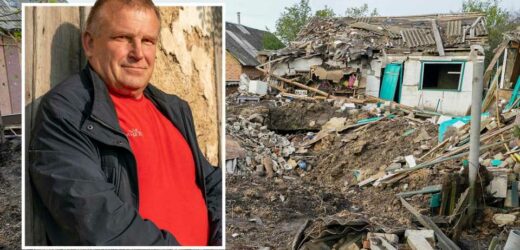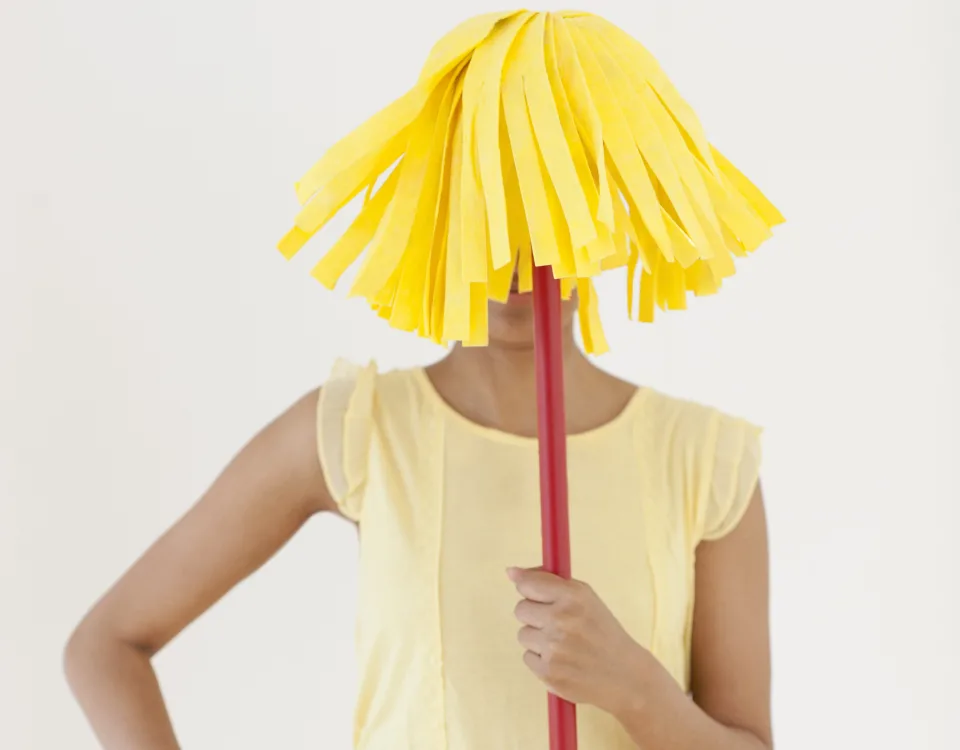AS the little convoy of aid trucks emblazoned with red crosses snaked into his remote village, Ivan Kryvonis’s eyes flickered with emotion.
During the Russian occupation of rural Yakovenkove, the District Mayor was subjected to a mock execution and told his wife Olena would be gang raped.
One crazed soldier out of his mind on drink or drugs had screamed: "The whole battalion will f**k your wife.”
And a sinister commander of Russian forces – nicknamed Wildman – told Ivan: "We will kill you and your wife. We’ll explode mines on your bodies out in the fields so it looks like you died in an accident.”
Yet, the mayor valiantly refused to betray his beloved Ukraine and work with the invaders.
Now vital humanitarian aid has arrived for his hungry people for the first time since the village was liberated last month.
READ MORE ON UKRAINE
Putin’s ‘mini-Auschwitz’ torture chamber as gold teeth and horror tools found
I’ve been drafted into Putin’s genocidal war & I want to escape to the UK
A tough man raised on this windswept plain where temperatures drop to -15C in winter, Ivan’s not the sort to outwardly display his feelings.
So while other villagers park their rickety bikes and dilapidated old cars to queue behind the Red Cross lorries for aid parcels, he leads me to his small office nearby.
There, speaking softly, he tells his story with a defiant and simmering rage.
A sleepy village of milking cows and maize fields, the moment the Russian tanks rolled in at 10am on February 26 is etched in Ivan’s memory.
Most read in News
Woman suffers fatal heart attack on flight to UK as medics rush to meet jet
Rolf Harris 'can't talk & is under 24hr care' while battling neck cancer
Meg & Harry's new photos show she is still calling all the shots – here's why
Moors Murder cops give update on search for victim after ‘skull’ was found
The dad-of-two, 56, revealed: “They stationed themselves around our village, living in our school and our regional club house.
“They stole everything including computers and music equipment. They broke down every door and moved into people's houses.”
As head of the village, Russian troops singled out Ivan for special attention.
“From the start they tried to convince me to work with them,” he explained. “There was no electricity and the Russians said, ‘We will repair it if you cooperate with us’. I refused.”
'Wildman' threats
Then on April 26 – after six failed attempts at coercing him to lead the administration under occupation – his wife answered a knock on their door at their modest home.
It was four soldiers from the so-called Luhansk People’s Republic, a region of Ukraine annexed by Russia.
An emotional Ivan continued: “As I went to meet them a rifle butt was smashed into my forehead. I fell on the ground and the soldier stomped on my head then screwed his boot into my face.
“One of the other soldiers said, ‘Don’t hit him in the stomach. The commander needs him alive’.”
As I went to meet them a rifle butt was smashed into my forehead. I fell on the ground and the soldier stomped on my head then screwed his boot into my face
Grain sacks were placed over Ivan’s head and that of his wife Olena, 57, and secretary Tetyana, 52, and they were dragged into the back of a vehicle for an audience with Wildman in the neighbouring village of Kalynivka.
The mayor added: “All the way they hit me with rifle butts. One soldier screamed, ‘We will burn your house down because you refused to take down your Ukrainian flag from the administration office."
One of the Russian military men also made threats to gang rape his wife.
Ivan, his wife and secretary were bundled out of the vehicle and forced onto their knees. They then removed the sack from his head.
Known to his men as Wildman, the commander told Ivan his name was Vladimir, he was aged 34 and had served in Syria.
His voice lowering as he remembered the moment, the mayor added: “He pressed his pistol into my temple, then moved it away and fired a shot in the air.
“Then he pressed the pistol to my leg saying, ‘I will shoot you in the knee cap’. I thought. ‘I want to be unconscious so I don't feel it’.
“He then said he’d shoot my wife in the head and pointed the gun at her and my secretary. They wanted to frighten me because they thought I was organising local defence forces.
“I think they were drunk or on drugs. Their eyes were crazy.”
After a four-hour ordeal, Ivan convinced his interrogators of his innocence, and, along with his wife and secretary, he was released and allowed medical treatment for head wounds.
A pro-Russian mayor was installed in his place and Ivan remained in the occupied village for six months as food and medicine ran low. Locals say the Russians provided some aid but it wasn’t enough.
Then, in a lightning counter offensive in early September, Ukraine forces swept through the Kharkiv region and Yakovenkove was liberated.
Red Cross officials in Ukraine’s second city Kharkiv contacted Ivan and on Saturday he was able to coordinate an aid mission for his villagers.
Sun photographer Chris Eades and I followed the Red Cross convoy of two lorries and a minibus carrying volunteers from their base in Kharkiv almost 90km south east to the village through armed checkpoints.
Ivan had alerted locals – many impoverished or elderly and unable to flee the occupation – of the aid drop.
Now they queued with solemn dignity despite their trauma.
'We'll shoot you if you don't tell us'
Mum-of-one Halyna Verbytskaia, 54, originally from Russia, had been working as a nurse in Italy when the village was overrun.
Returning to care for her sick mother in May, Halyna was held at the nearby Verbivka checkpoint by Russian soldiers.
The nurse revealed: “They interrogated me for four hours about Ukrainian checkpoints.
“I said I didn’t know anything. I told them, ‘If you want to know, go and look’.
“They replied, ‘We’ll shoot you if you don’t tell us’. I began crying and said, ‘shoot’. They were young boys, toy soldiers.”
When a strange soldier is stomping on your native ground it’s unbearable, awful
They eventually let her pass to the village.
Asked about the occupation, she begins sobbing uncontrollably and says: “When a strange soldier is stomping on your native ground it’s unbearable, awful.”
Halyna added that after Yakovenkove was liberated on September 5 she “exhaled, I felt free, euphoric”.
Collecting her Red Cross hygiene package, she added: “For six months we didn’t have anything. Today is like a fairytale for people.”
Red Cross volunteers handed out boxes containing pasta, rice, canned tuna, sunflower oil, tea, sugar and flour.
Healing experience
Farm worker Oleskiy Sychov, 42, who looks after his ill dad Mykola, 72, told me: “Everybody has been waiting for this.”
He revealed that being able to gather in the shadow of the Red Cross lorries was a healing experience for this brutalised community.
“Even just to come together and have small talk today and walk the streets freely is great,” he explained.
He said of the six-month Russian occupation: “It was scary. Their tanks and artillery were around my house.
“Every time they launched missiles we had to run to the basement.”
Gesturing towards dozens of villagers beside the Red Cross lorries, he added: “As you can see it was mostly elderly people who stayed.
“They don’t have a lot of opportunities and this aid is vital for them.”
Home flattened
In the queue I met pensioner Dmytro Phylypenko who takes me to his nearby farmhouse turned to matchwood, he says, by a Russian missile.
The 67-year-old now sleeps on a sunlounger in a ramshackle outhouse with no heating.
Chirpy despite his hardship, he said “I have no electricity and I have to collect water in bottles.
“I have been surviving on milk from my three cows and eggs from my chickens and ducks.
“I don’t have a roof on my house but I still have my animals.”
'Smiling again'
Queuing with three-year-old daughter Arina, mum Svitlana Bachura, 26, said of life under Russian rule: “There were explosions every day, helicopters fired and planes came over our house.
“It was scary to walk around, you didn’t know if you might be taken somewhere."
Collecting a Red Cross parcel, she added: "It is really nice when you are remembered by someone.”
Young mum Victoria Chapailo, 20, clutches three-month-old Zhenya who was born under occupation.
Collecting a bundle of hygiene kits with the help of her aunt, unemployed school cook Oksana Toryshnia, 37, Victoria said: “For six months there were no food deliveries, not even bread.
“The Russians did hand out aid but if they gave you half kilogram or a maximum of one kilogram of flour, then lucky you.
“Electricity came and went in waves, it was tough though the Russians never insulted me.”
It was scary to walk around, you didn’t know if you might be taken somewhere
The hygiene packs contain soap, emergency blankets, toothpaste, flannels, face masks and plasters.
Red Cross volunteer Shakhry Veliieva, 20, who is studying law, said: “People here were treated so badly. It’s wonderful to see them smiling again.
“We are running as many as three aid missions a day to towns and villages in the area."
Mayor Ivan takes us to a giant bomb crater in the village where he says a Russian S-300 surace to air missile smashed a pensioner’s house to smithereens.
“Normal life is coming back to the village but people need work,” he says as he surveys the damage.
Read More on The Sun
No one turned up to my boy’s birthday – we had to change pizza order to one
Paris Fury shows off glam mum crew at Venezuela’s Vegas-themed birthday bash
Unbowed and immensely proud of this rustic corner of Ukraine, he says the first job he did when the village was liberated was to mow the grass around its Second World War memorial.
“Maybe the guys who tortured me will be prosecuted,” he tells me. “But I'm just grateful to be alive and healthy.”
Source: Read Full Article


























